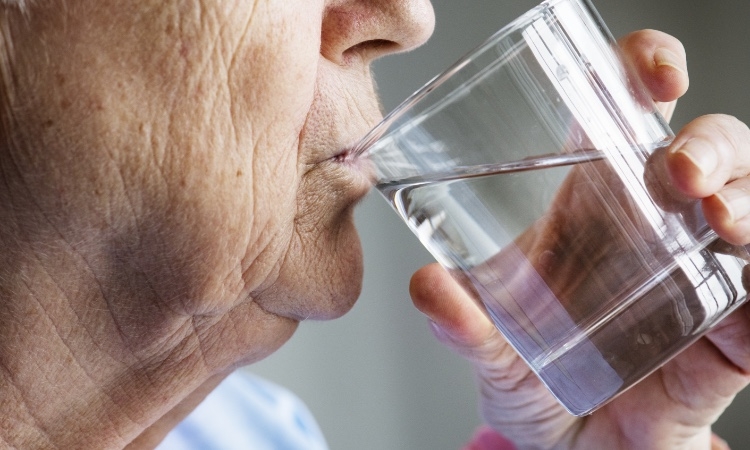
Is Dehydration Danger More Prominent Among Seniors?
By CarePatrol of Northwest Phoenix
Everyone loves spring and summer. Rising temperatures, sun-drenched days, and a plethora of outdoor activities increase the energy levels and cheer the heart. But be careful not to get caught up in the moment and overdo it.
This is a prime time for dehydration and related health risks. The elderly are most vulnerable as their sensation of thirst has been diminished by natural changes in an aging brain that interfere with sensory signals.
Couple this with a slowdown of the human body’s ability to adapt to temperature swings and you have a “perfect storm” for dehydration dangers to emerge.
As if that isn’t enough cause for concern, the following also contribute to a senior citizens’ increased dehydration threat: Cognitive function decline from diseases such as Alzheimer’s can progress enough as to where the senior simply can’t remember where the water is in their own home. Or as previously noted, thirst signals from the brain are no longer being conveyed.
Reluctance to drink fluids so as to avoid the need to use a restroom, or in the case of incontinence to have an accident or require a change of protective product. Especially prevalent when traveling or in other unfamiliar settings.
The inconvenience of transferring from a room, chair, or bed where they are quite comfortable is another deterrent to staying adequately hydrated. Seniors who use wheelchairs and walkers to get around, or are recovering from knee or hip surgery, would prefer not to expend the energy or endure the pain to get up for a drink.
Those with strength and balance issues may fear falling as well.
Guidelines for Staying Hydrated in the Heat
Adults should be drinking several glasses of water or liquids daily in the summer months. Experts agree 4-6 glasses (12 ounces each) are a best practice. Flavored water or other such beverages can also be used to entice a senior to drink more. As always, avoid alcohol and caffeine. Consult your doctor if necessary.
Helpful Hydration Habits:
- There are foods that contain water and are also healthy for seniors to eat as they are in the fruits and vegetables category. Watermelons, cantaloupe, grapefruit, pineapple and berries have high percentages of water. Serve to senior for breakfast, dessert, or snack.
- Keep water available everywhere, all day and night long. Provide the senior with a personal water bottle. Decorate it with a picture of a grandchild or favorite place. Encourage the senior to always keep with them.
- Monitor fluid intake throughout the day. Track how much the senior consumes – number of refills, empties. Inventory what is in the refrigerator in the morning and again at bedtime.
- Since seniors often don’t feel thirsty, frequently encourage them to take a sip. Getting a glass of water down first thing in the morning provides a great start to the day. It jumpstarts metabolism, promotes cell production, and cleanses the colon.
- Finally, avoiding perspiration is another dehydration prevention tactic:
- Don’t venture long in the outdoors during heat waves
- Exercise in the morning or evening
- Wear lightweight cotton or linen clothing
- Shade the head and face with a hat
- Stay out of the hot afternoon sun